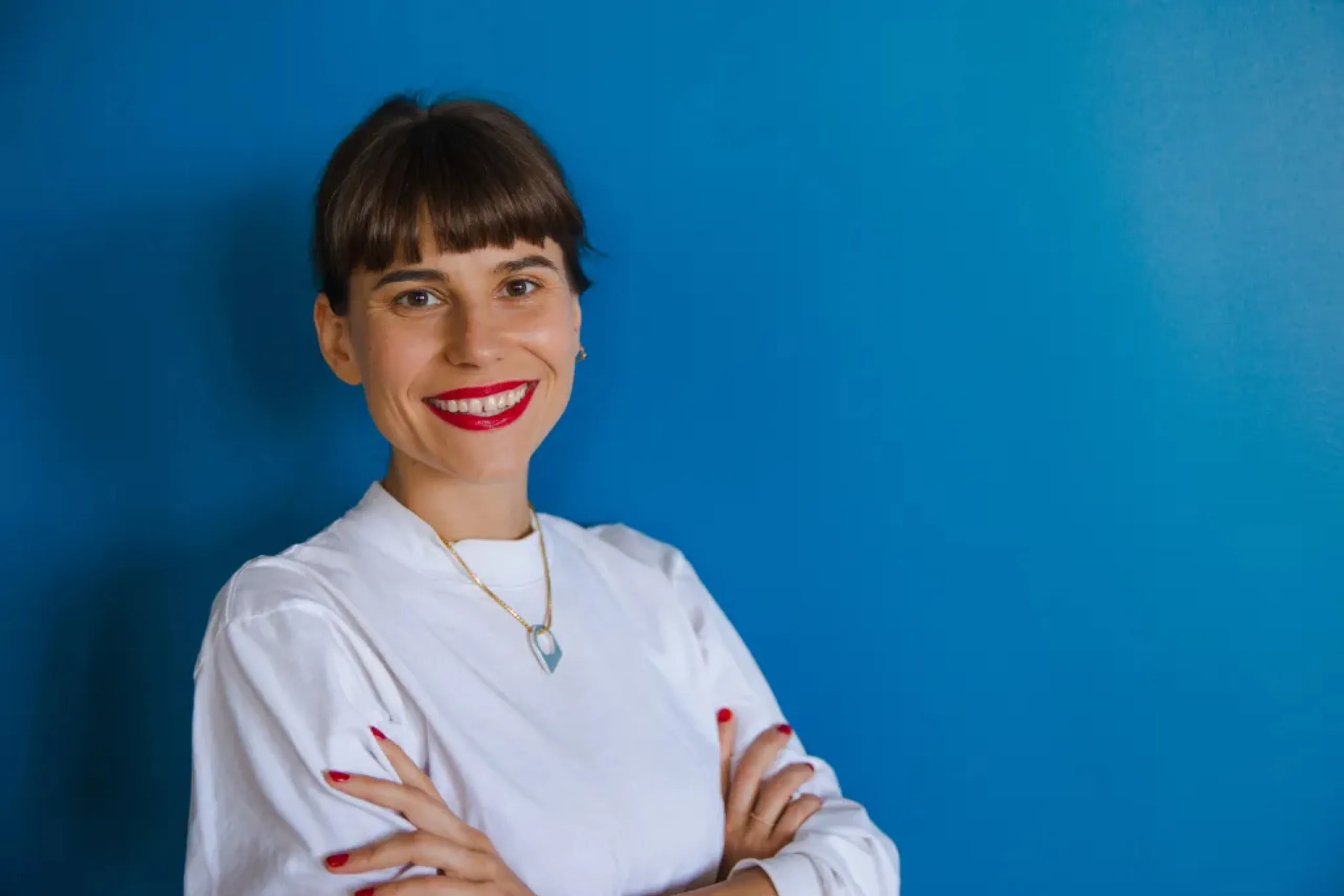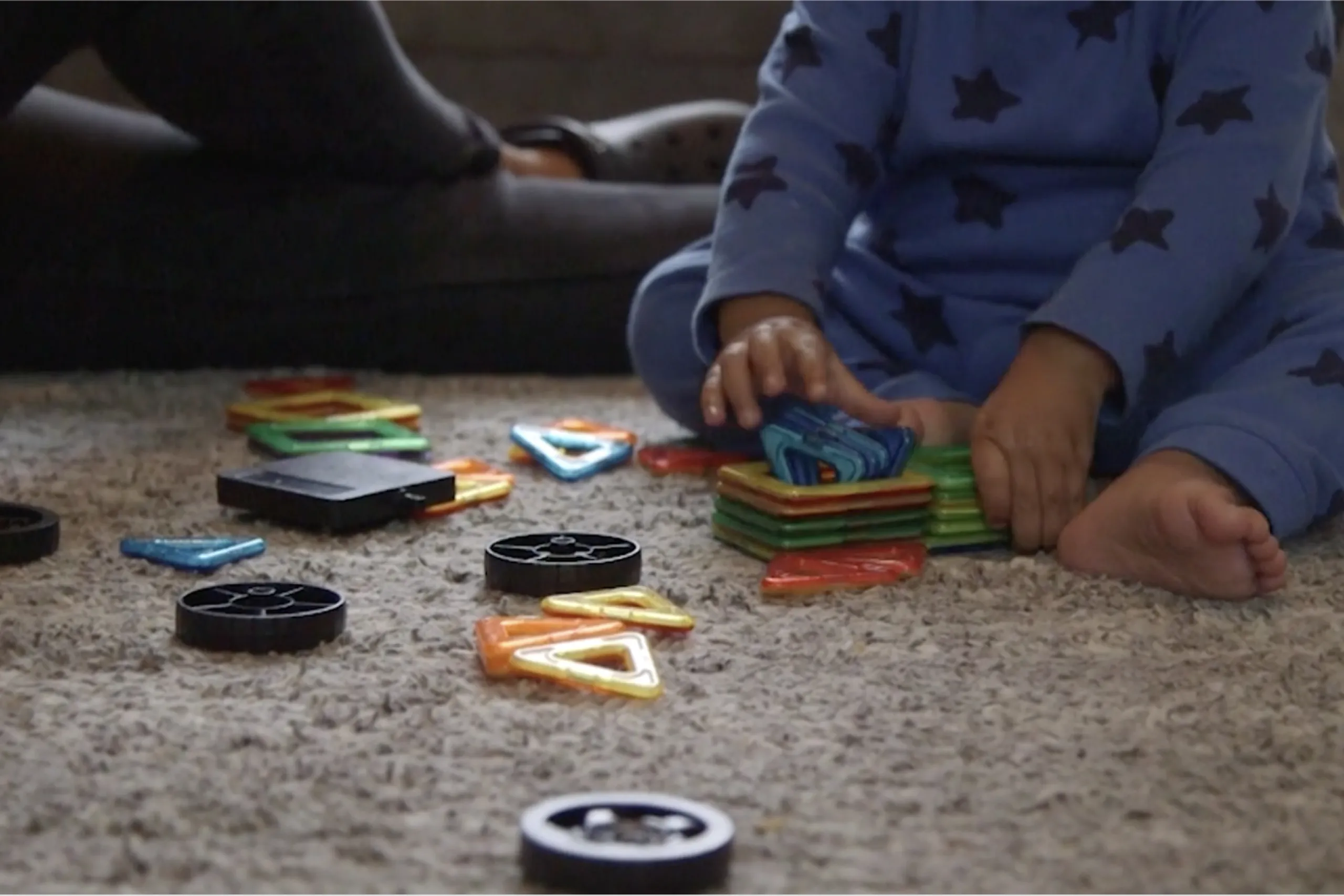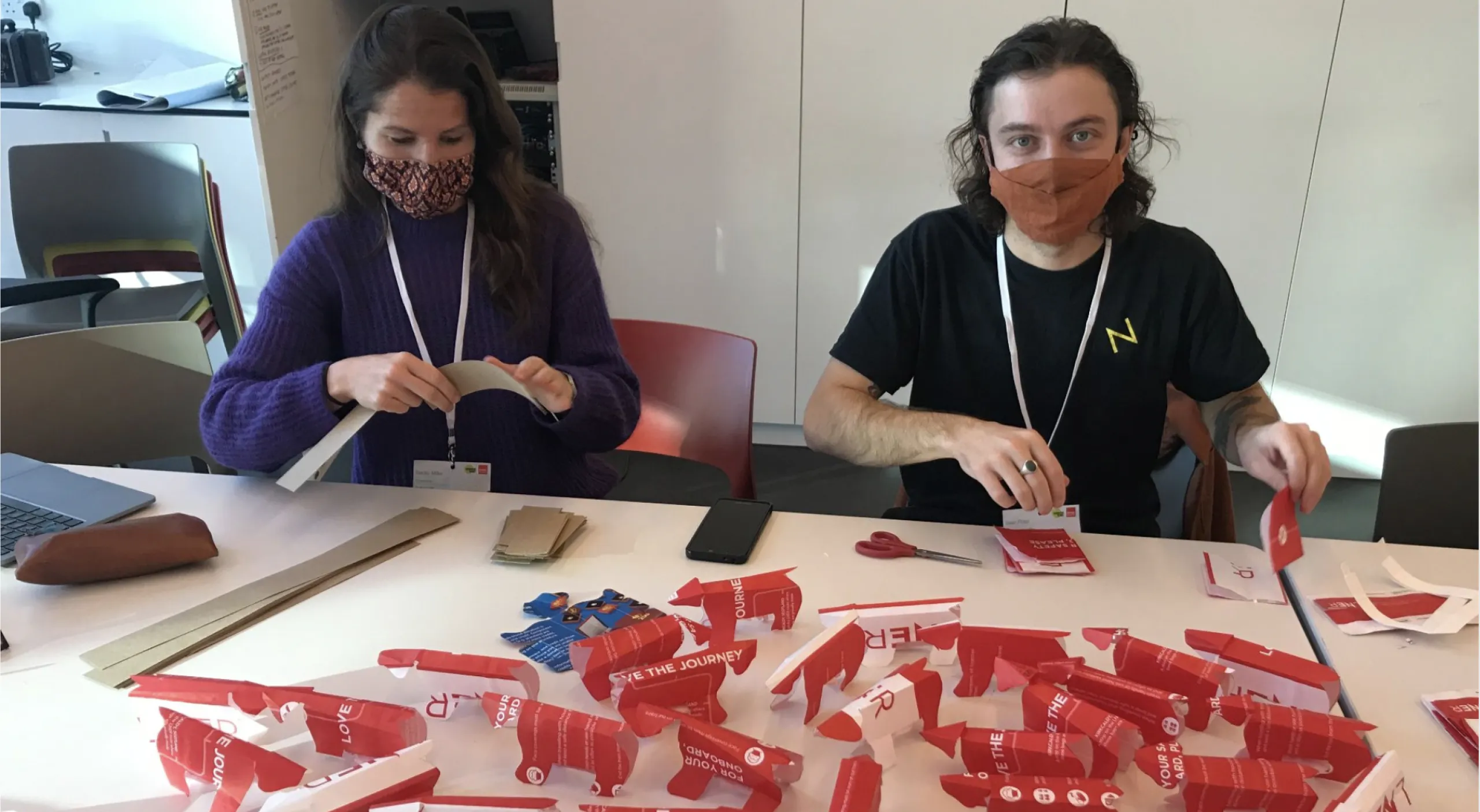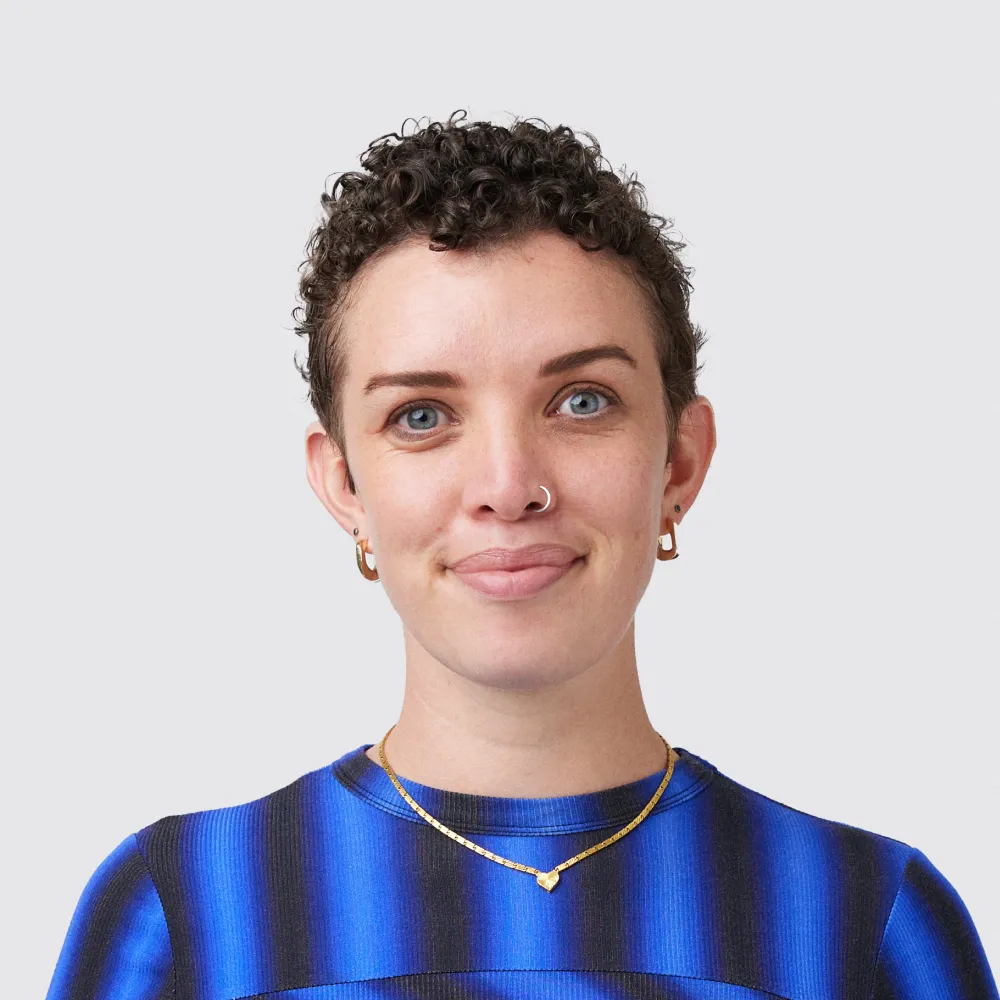What is it like to lead an innovation organisation within the complexity of the UK central government? And how do you build the right conditions for success? Today’s Head of Research and Capability, Talia Radywyl, made a London pitstop in the midst of recent conference-touring to chat with Camilla Buchanan , co-Head of the UK government’s Policy Lab .

In conversation
Camilla Buchanan , co-Head of the UK government’s Policy Lab
Talia Radywyl, Head of Research and Capability at Today
When somebody asks you what you do, how do you explain it?
In terms of the type of design that I'm trained in and the design that I practice, I call it strategic design .
In terms of the organisation, the Lab is inside central government in the UK. It's a cross-government team, which in some respects operates like a mini-business, to improve policy and public service delivery. We get commissioned by people right across the policy system, and we've done about 180 projects to date over the eight years that we've been running. And actually, the team itself is not explicitly design-led, it is much more of a hybrid. We have filmmakers, we've got social researchers, designers from all manner of backgrounds, a curator, a creative technologist. But design is very much an underpinning principle of how we work. You can read more about the Lab in our prospectus .
What interests you most about your work?
I'm really interested in how you design a team and get them together to do that kind of work. I'm even more interested in the back-end of designing an organisation, which is probably a feature of the job that I do. I'm interested in how you create the conditions for the kind of creative, thoughtful, relentlessly human-centred work that we do in government.
Could you speak to a project or something you've done in organisational design that has brought that desire to fruition?
If I was going to really pull one out that I think it is powerful to have had the opportunity to work on, it's probably the work that we did for the Independent Windrush Lessons Learned Review . This profoundly affected people who had been in the UK for many decades - often since childhood - who had their nationality status questioned by the government. We did some work for the Independent Reviewer to look at how government had handled that, with people who had really had their lives turned upside down in ways that are hard to even imagine.
What was so amazing about that project was that the films we made with participants really went into the public domain. The work was intended to be viewed publicly, thanks to the commissioner who was very keen for it to be shared. It enabled people to tell their stories in their own terms. That's a piece of work that I feel very proud that the Lab was part of. It was a massive moment of reckoning nationally, which is still ongoing. It was such a privilege to work with the people that we worked with in doing the review. And, we were able to do this and to make these films, because we had an expert film-maker in the team, who had honed the approach of film ethnography for a policy context over several years.

Film ethnography still image from Policy Lab for the Independent Review of Children’s Social Care (2022), read more .
What's your dream project brief for making positive impact in the world?
I'm always really interested in the projects that give us the opportunity to have what I call ‘system spin-offs’. Where can we affect a policy decision upstream through information gathered with different people? Where can we affect how funding is organised? Where can we affect some bit of organisational design?
We've got a project that we're doing at the moment on multiple and complex needs - adults facing one of a number of highly challenging circumstances and conditions such as homelessness and addiction. Almost by its nature the work is inherently systemic and we have to look at things like how is the funding flowing and what is the experience of care in that area? How are various policy decisions being understood and what are their unintended consequences?
We're doing both an ethnography and a filmed ethnography approach, which is a big part of the bread and butter at the policy level of what we do. But at the same time a huge slice of that work is looking at the system, looking at how it's working in a very cross-government way. So any project with a scope of that nature, anything that lets us get into the system, but also see what's happening on the ground as a result of that system, is very worthwhile.
What's standing in the way of being able to do that kind of work – what do you need today to enable you to make a better tomorrow?
There are so many things that can stand in the way, but a lot has changed in the last decade too. This work is not about a design team coming up with the silver bullet. We have to be really clear about where we can have an impact. And I think almost where we have an impact is not necessarily through the specific projects. Of course that's a big part of what we do, but it's also the ripple effect of taking people, at this point thousands of civil servants in the UK, on quite a deep journey of how to work in a very very different way.
Then you have the really big institutional barriers. Which are, how do you get meaningful collaboration between people who lead on different policy areas or domains? How can you work in a nimble way in large organisations? What can you do when you are a tiny entity to support more people to engage with different approaches? And where is the best place to focus in these massive systems?
And I think in part it's about getting a team of people who have very different skill-sets to the classic civil servant and enabling them to be system navigators and know what it is to work within policymaking. It’s such a massive part of how we enable change. It takes a lot of training, learning, capability building, as does building relationships with commissioners so that we can work together and have a team who can actually deliver for them. But I think after eight years, amazingly, we are at that point, which is really awesome. And then you have to design the business entity that can do that work and I think that's the bit that I find the most interesting at this point.

Policy Lab co-design workshop in Dundee for the Design Council’s Design for Planet conference, coinciding with COP26. Read more .
